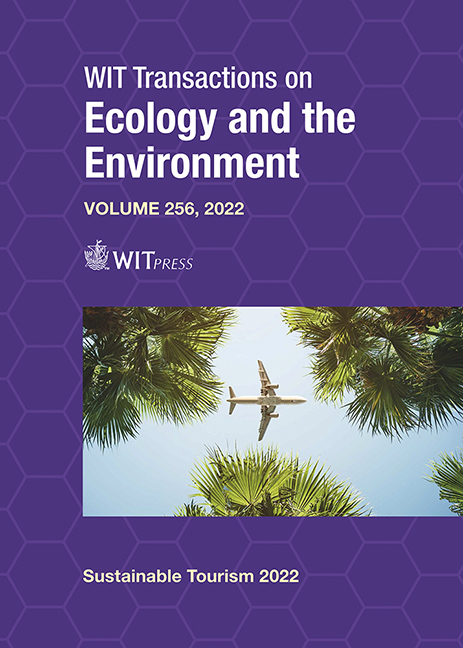COLD-WATER RECREATIONAL DIVING EXPERIENCES: THE CASE OF KELP FORESTS
Price
Free (open access)
Transaction
Volume
256
Pages
12
Page Range
27 - 38
Published
2022
Paper DOI
10.2495/ST220031
Copyright
Author(s)
SERENA LUCREZI, MICHAEL JUAN DU PLESSIS
Abstract
Recreational diving is an important part of marine tourism and has been extensively studied, especially in the context of warm-water and tropical environments. Comparatively, research on diving and the segmentation of divers in cold water habitats remains scant. Ever since the award-winning documentary My Octopus Teacher came out in 2020, more attention has been drawn to kelp forests, which are typically cold-water habitats. Diving in kelp is a recreational activity that has the potential to become a major part of marine tourism in countries like South Africa. However, limited research exists on this niche type of diving. This study aims to segment and profile kelp divers, to guide the sustainable development and management of kelp diving as marine tourism activity. To reach this aim, qualitative research was conducted. Specifically, semi-structured interviews were used to gather data on the demographic, psychographic, behavioural and specialisation profiles of 50 divers in Cape Town. The divers were male and female in similar proportion, they were in their late thirties and had tertiary education. They were mainly from South Africa and resided in Cape Town. They were both scuba and free divers and moderately specialised. Motivations to dive in kelp included observation, being in nature, relaxation and escape, adventure and exercise, discovery and learning, and photography. Experiences diving in kelp were relaxation and wellbeing, awe and wonder, contact with nature, freedom, novelty, feeling safe, and social interaction. The divers ascribed extrinsic and intrinsic values to kelp and recognised ecosystem services of kelp forests. They were also aware of problems affecting kelp and could propose viable solutions to combat these problems. The divers showed strong conservation commitment and place attachment to the local coast and kelp forests. The results were used to make recommendations concerning marketing and management, including better patrol of kelp forests, codes of conduct for divers, education, and marketing of sustainable kelp diving and other nondiving activities.
Keywords
recreational diving, segmentation, recreation specialisation, diving motivation, phenomenology, values, attitude, conservation commitment, tourism management





